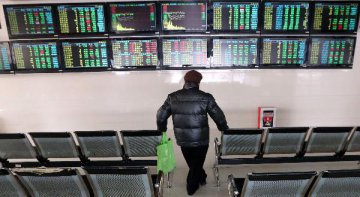
Hong Kong (CNN Business) China is warning speculators betting against its currency to prepare for a fight.
The yuan on Friday slid close to its lowest point since the global financial crisis in 2008. But it recouped its losses after combative comments from a Chinese central bank official.
"For those who are trying to short the renminbi, we fought hand to hand a few years ago so we are very familiar with each other," Pan Gongsheng, deputy governor of the People's Bank of China, said at a news conference in Beijing. "I think it's still fresh in our memory."
He reiterated the bank's position that it wants to keep the yuan broadly stable.
The currency has now slumped more than 9% against the dollar since January, coming under pressure from the US Federal Reserve's moves to hike interest rates and fears about China's slowing economy. The decline has added to the tensions between Beijing and the Trump administration, which are locked in an escalating trade war.
The exchange rate is edging closer to 7 yuan to the dollar, a key psychological threshold for investors, according to Stephen Innes, head of Asia-Pacific trading at currency broker Oanda. If it sinks past that point, traders may start selling it more aggressively.
To counter, the Chinese central bank could support the currency by selling some of its huge war chest of US dollars.
It will be reluctant to let its currency slip much lower than 7 to the dollar because it "doesn't want the market to panic," said Larry Hu, a Hong Kong-based economist at investment bank Macquarie.
The weakening yuan is having a "destabilizing" effect on the country's stock market, Innes said. One reason is that Chinese companies have large debts in dollars that become harder to pay back as the yuan falls.
The main Shanghai stock index has plunged more than 25% since its peak in January.
Risk of market panic The latest slide is more about the dollar's strength than fears about the yuan, said Hu.
The greenback has been rising in recent months because of investors' confidence in the US economy and the Fed's gradual hiking of interest rates. China's central bank, meanwhile, has been loosening monetary policy.
But as Pan reminded traders on Friday, Beijing has intervened heavily to prop up the yuan in previous years.
A steep drop in the yuan could send a flood of money gushing out of China as investors lose confidence and seek to exchange it for assets in dollars and other currencies. That happened during China's last major periods of market volatility in 2015 and early 2016. Beijing is estimated to have spent about $1 trillion of its foreign currency reserves between 2014 and early 2017 to prevent a collapse in the yuan.
Currency war
US President Donald Trump has accused China of deliberately devaluing its currency as the trade war between the two countries has escalated.
Beijing has repeatedly rejected his claims, although a cheaper yuan typically benefits China's huge export industry by making goods less expensive.
Despite Trump's criticism, the US Treasury Department this month againdeclined to label China a currency manipulator in its report on foreign currencies.
Economists that follow China generally say it's unlikely Beijing would seek to drive down the value of its currency at the moment.
"It definitely will not fight a currency war amid a trade war," Macquarie's Hu added.
The yuan's next move could hinge on Friday's US economic data, according to Gao Qi, a Singapore-based currency strategist at Scotia Bank. If the numbers are surprisingly strong, the yuan could fall further, Qi said.























Latest comments